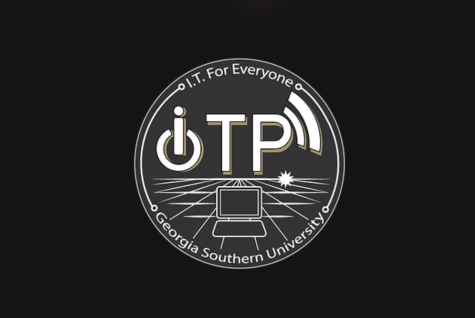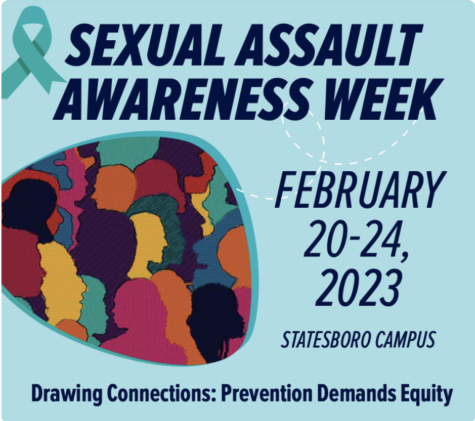Finals Week: Students’ Favorite Ways to Study
April 15, 2019
Finals week is approaching fast, and students have already started writing their research papers, reviewing their class notes and cracking open their textbooks for the first time this semester.
It is no secret that the foreboding final examination is the bane of any college student’s existence, but hopefully you have attended your classes for most of the semester and taken halfway decent notes.
Now, it’s time to buckle down and review what you’ve learned. Yep, I’m talking about hardcore, four-hour study sessions in Henderson Library.
The question, however, is whether those study sessions have made a positive impact on your academic performance.
If so, that’s fantastic. Keep doing what you’re doing. If not, well, perhaps you should examine how you’re studying.
Everyone studies differently, and there are many different ways to study. No way is right or wrong. It’s all about what works best for you.
Yesterday, I polled more than 100 college students on Twitter and asked them how they study for final exams. Here are the final results.
| Student Study Habits | Percentage |
| Review / Rewrite Notes | 66 |
| I use Quizlet to Study | 24 |
| I Don’t Need to Study | 9 |
| Other | 1 |
The majority of students polled preferred looking over and rewriting their class notes when studying for finals.
As well, studies have shown that taking notes by hand benefits the learning process. Handwriting notes can facilitate comprehension, help you retain the information you are learning, and thus, help you recall it easier during an examination.
I, personally, am a fan of this method. When I study, I not only rewrite my class notes by hand, but I also retype them in a Word or Google document as well.
Finally, as I review my rewritten notes, I type out questions about the material that could be on the exam and attempt to answer them.
How you study the notes you have written is definitely important, and this is where a certain internet tool comes in handy.
Quizlet
Quizlet, the Twitter poll’s second-most popular study method, is an online study tool. Users can make flashcards in a term-to-definition format and use the flashcards to learn exam material in a variety of interactive methods.
These methods include the traditional active recall, or “card flip,” tactic. Cards can also be converted into an exam format, complete with multiple choice, matching and short answer questions.
For example, say a student creates three different but related flashcards, as follows:
- Term – “journalism”
- Definition – “the collection and editing of news for presentation through media”
- Term – “publishing”
- Definition – “the business or profession of the commercial production and issuance of literature, information, musical scores or sometimes recordings, or art”
- Term – “public relations”
- Definition – “the business of inducing the public to have understanding for and goodwill toward a person, firm, or institution”
Quizlet can then convert these terms and definitions into a more realistic test format, as follows:
- Journalism
- The business or profession of the commercial production and issuance of literature, information, musical scores or sometimes recordings, or art
- The business of inducing the public to have understanding for and goodwill toward a person, firm, or institution
- The collection and editing of news for presentation through media
- The business of inducing the public to have understanding for and goodwill toward a person, firm or institution.
- Publishing
- Public relations
- Journalism
Students can also create their cards in a fill-in-the-blank format by adding “________________ is” in front of each term’s definition.
Quizlet will then present the card on the practice test as follows:
- __________________ is the business or profession of the commercial production and issuance of literature, information, musical scores or sometimes recordings, or art.
- Journalism
- Publishing
- Public Relations
You will even receive a score once you finish taking the practice test, along with a record of your correctly and incorrectly-answered questions.
Additionally, Quizlet offers games that turn your terms and definitions into fun and engaging challenges, such as their matching and “Gravity” games.
Not studying at all
Some people just do not need to study to do well on their exams, and you know whether you are one of these people or not.
I, personally, am not, but kudos to the people who are for having an awesome brain that retains basically everything.
But even if you are the student who can score an 80 on an exam without studying, why not hit the books for an extra 30 minutes to an hour every day and increase that B to an A?
Or maybe, you are the badass who scores an A regardless. I envy you!
Other study methods
Some of the students polled on Twitter had their own unique ways of studying.
User @KotaRoda82 said she types her notes into a Google Doc, prints them out and reads them out loud to herself. She follows up by translating her notes into simpler, easier-to-understand language.
Additionally, user @kaitspivey3 said she reviews old test questions and records her class lectures [if you do record, be sure to get permission from your professor first].
She later re-listens to the lectures to help her hone in on the material she did not quite understand while in class.
Another great way to study, I have found, is to recite the material to a group of friends. If you can do it confidently and your friends understand the concepts, then you probably have a solid grasp on the material.
If, however, you find yourself questioning what you’re saying or your friends are sitting there with confused looks on their faces, then it might be time for you to hit the books again.
What About You?
Do you have a unique or interesting way of studying that was not discussed in this article?
Tweet us @ReflectorGSU and tell us all about it.Good luck on your finals, everyone. We’re almost through the wilderness.








